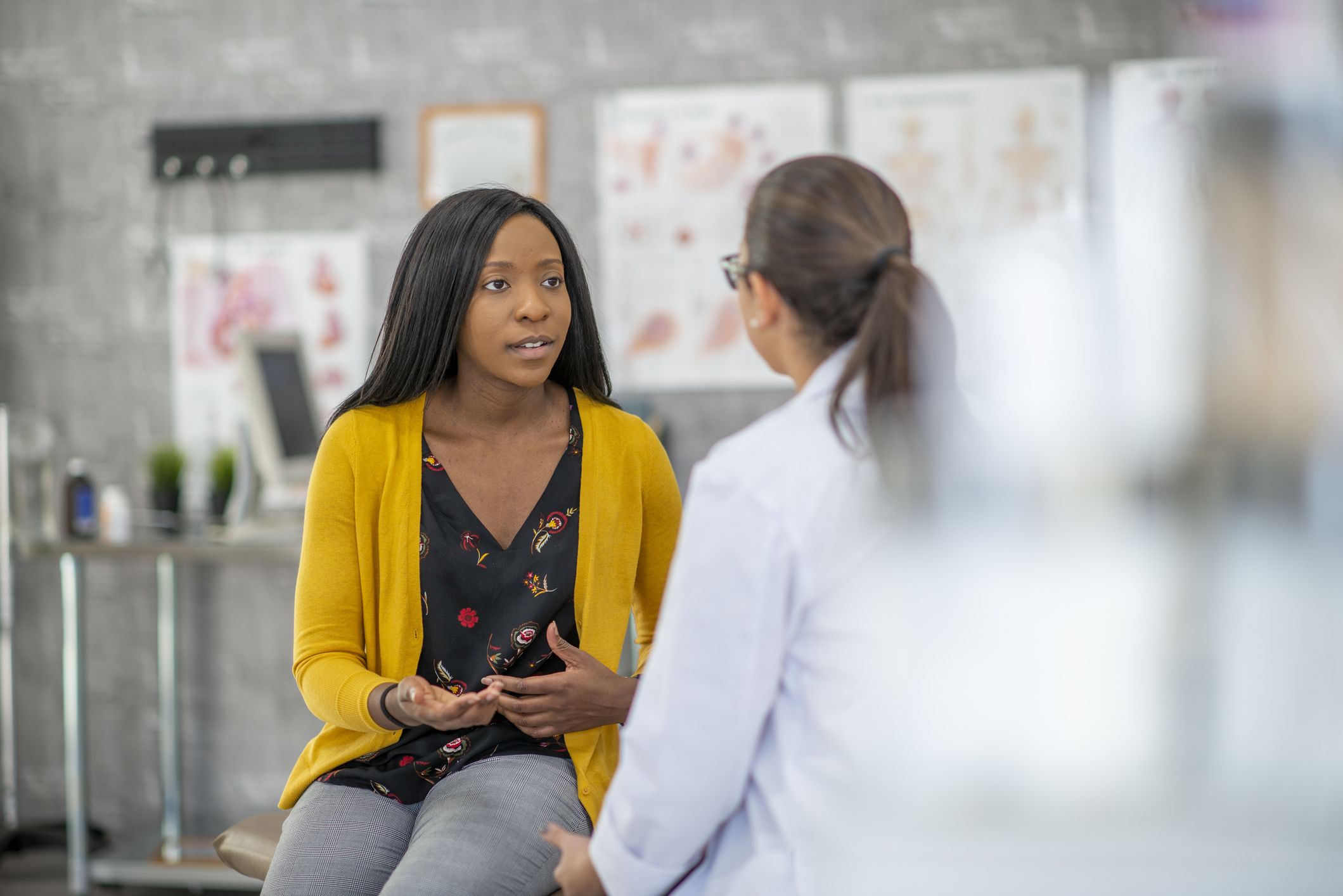Updated on January 2, 2024
It’s estimated that more than 6.5 million women in the United States are affected by endometriosis. The chronic condition occurs when tissue from the lining of the uterus grows in areas of the body where it doesn’t typically grow. Endometriosis can be very painful and is a leading cause of female infertility, but the condition is often misunderstood due to lingering myths and misconceptions. As a result, many people wait years before they are finally diagnosed.
If left untreated, however, endometriosis can worsen over time, according to Erika B. Johnston-MacAnanny, MD, FACOG, board-certified OBGYN and fertility specialist affiliated with Henrico Doctors’ Hospital. We spoke with Dr. Johnston, who is also the medical director of Shady Grove Fertility in Richmond, Virginia, about endometriosis. Here are the key facts that she wants everyone to know.
Q: What are the symptoms of endometriosis?
A: The most common symptom for people with endometriosis is painful periods. Having pain with bowel movements, particularly during menstruation, is also very typical of the condition. Similarly, pain with urination or with deep penetrating intercourse are also characteristic of endometriosis. Having these symptoms as well as trying to conceive for more than a year without becoming pregnant are additional signs of the condition.
Q: How can someone distinguish between typical cramps and endometriosis?
A: Pain that can be treated with a localized heating pad or over the counter medication is typical of period cramps. Pain related to endometriosis may start around the time of your period, but it is usually more severe. It may interfere with going to work or to school, and it usually does not respond to typical over the counter medication.
Q: Endometriosis involves more than just the uterus. Where can endometrial tissue grow in the body?
A: Endometrial tissue can grow anywhere in the abdominal cavity. During your period, blood and menstrual fluids exit through the vagina, but it can also flow backwards through the fallopian tube where cells that line the inside of the uterus can implant outside the uterus. More commonly, this tissue implants on the ovaries and on the tissue behind the uterus. It can also travel to other parts of the body, such as up to the liver or the lower edge of the lungs.
Q: Do we know why this happens?
A: We think most people with periods experience blood flow that goes backwards, but not everyone develops endometriosis. So, there is something on a genetic or cellular level that's different. There are a few theories behind how it occurs. One is that endometrial tissue can actually spread through the lymphatic system. Another theory is that it travels through the blood vessels. This would help explain some unique cases where someone actually has endometrial tissue in their lungs, or oddly enough, in their brain. A third theory is that perhaps the tissue was always there—even during fetal development. It just got the wrong signal about where it was supposed to go and implanted in the wrong place. It's not clear which theory is correct but certainly the more investigations we do, the more we understand that this tissue, which looks like the tissue from the inside lining of the uterus, acts a bit differently.
Q: How is the condition diagnosed?
A: The "gold standard" for diagnosis is doing a laparoscopy and seeing a lesion, but certainly less invasive investigations can be performed first. We could start very simply by just taking a history. The next step would be an internal pelvic examination just to feel the pelvic structures. Then, if there is a concern about pain related to endometriosis, most OBGYNs will recommend an ultrasound evaluation of the pelvis. All of these things can be done first before we consider surgery. And in fact, two of our governing groups that give us guidance for good obstetrical care, both in Canada and the U.S., suggest that if someone's symptoms are likely enough to be related to endometriosis, presumptive medical treatment can actually start before a surgical procedure is performed to confirm the diagnosis.
Q: Many people with endometriosis have pain for years before they are finally diagnosed. Why?
A: It shouldn't take years to diagnose endometriosis, but it does. All too often gynecologic concerns are marginalized. I think as healthcare providers we probably have not historically done a very strong job at investigating these concerns. But I have to say, if someone is aware that it might be a problem or if they’re aware of having symptoms, then it shouldn't have to take years to diagnose it. I think we can do better.
Q: Does having endometriosis mean someone can’t get pregnant?
A: Not all people with endometriosis have fertility issues. What concerns us with endometriosis is distortion of the pelvic anatomy that makes it hard for the fallopian tube to successfully pick up an egg from the ovary. Endometriosis can also implant in the ovaries and form a cyst. Unfortunately, this can lower someone’s egg count and cause infertility. The good news is that most people with endometriosis don't have these conditions, so endometriosis doesn't usually have a negative impact on their fertility. My hope for every person with endometriosis is that they never need my services for fertility treatment. Seeking care early on is important, so that the disease doesn't progress to a stage that would involve the pelvic structures and increase the likelihood of infertility.
Q: Is surgery the mainstay of treatment for endometriosis?
A: There's a lot of focus on endometriosis now and there are some great minimally invasive surgical strategies for people with high levels of pelvic pain or distortion of the anatomy within their pelvis because of endometriosis. But surgery is by no means the only option. In fact, often we discourage it as an option, depending on someone’s unique circumstances because it may not lead to resolution of their symptoms. We really try and use medication first and defer using surgery until medication has not been effective.
Q: What medications are used to manage the condition?
A: There definitely are really thoughtful medical management strategies that reduce the amount of menstrual cycles that someone has across their lifetime, improve their pain symptoms and prevent progression of their disease. This may involve continuous birth control pills or injectable contraceptives, or daily oral agents that are taken to try and reduce estrogen levels. Many of those can be very effective.
Q: Are there any lifestyle changes that could help ease endometriosis symptoms?
A: From a non-medication, nonsurgical standpoint, I think my view is that engaging in exercise and having supportive social networks can be very helpful. On the difficult pain days, it could result in a reduction in what someone perceives as the severity of their symptoms.
Q: So, there are treatments but no cure for endometriosis?
A: I always tell my patients that just like diabetes, this will always be something that they will have to consider and think about.
Q: Won’t symptoms disappear after menopause?
A: Anyone who’s menstruating is at risk for endometriosis, but menopause doesn't mean you're going to be free of the condition either. Many of my patients with long-term endometriosis are thrilled to go through menopause because they assume they finally won’t have to manage the condition anymore. Unfortunately, people who have advanced endometriosis can still have symptoms from their condition even in the menopausal time period.
Q: What do you want to say to people who are struggling with endometriosis or suspect that they have the condition?
A: Many people have pain for years and normalize their severe symptoms. It's important to have an open dialogue with your healthcare provider about what you are experiencing, how it's affecting your daily life, and ability to be productive. If you're already in the care of a gynecologist who you feel is not responsive to your concerns or questions, seek a second opinion. A second physician might be able to provide a different perspective or treatment strategy that better resonates with your needs.





